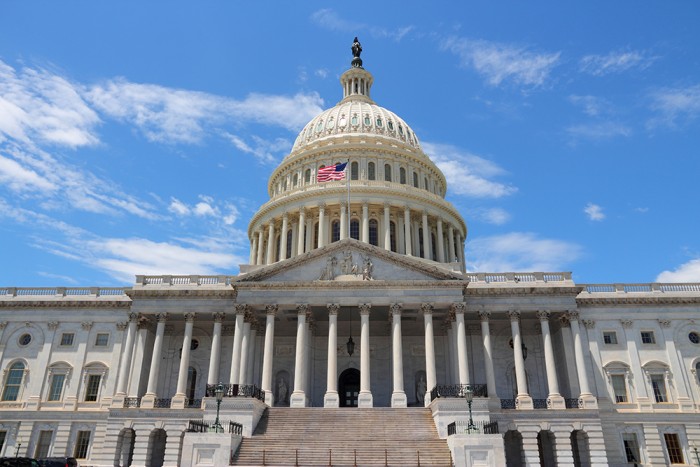Gov. Wolf Offers COVID-19 Community Preparedness and Procedures Materials
Harrisburg, PA – To help make the public aware of COVID-19 preparedness and procedures, the Wolf Administration has created a library of free outreach materials for businesses, organizations, and anyone interested in displaying important messaging on COVID-19.
The materials are available at PAcast.
“The goal is for everyone to have access to and be encouraged to share the information important to stopping the spread of COVID-19,” Gov. Wolf said. “Please help us share awareness while using caution and protecting yourself.”
Posters are available in multiple sizes and every Pennsylvanian is encouraged to make them accessible to their community of friends, community or religious group members, and business associates to print and post. The administration also expects the posters to be available in newspapers across the state for residents to tear out and post throughout their communities.
Properly sized graphics are available at PAcast for social media. Gov. Wolf also encourages everyone to make use of COVID-19 social media content on the Pennsylvania Department of Health’s Facebook and Twitter pages.
The most up-to-date information, including video graphics, footage of all of the governor’s press conferences and b-roll, is also available at 08PAcast. Additional materials will be added to the library as they become available and as the situation evolves.
MEDIA CONTACT: Lyndsay Kensinger, 717-783-1116
# # #
Federal Funding Package Referred to Senate
Late last week, the House passed the Families First Coronavirus Response Act (HR 6201). The final bill was extensively negotiated between House Democrats and the White House. The bill is now with the Senate for passage early next week. This is the second funding package in the federal response to COVID-19.
The bill proposes:
Increased Federal Funding
- Provides states with a 6.2% increase on their traditional FMAP for all medical services, if they agree to certain terms.
- FMAP increase will last the length of the Public Health Emergency.
- This will not apply to either an expansion or administrative FMAP.
- No specific rate increase to ensure that relief for the Medicaid states is shared with disability workforce.
- Provides the territories with a 6.2% increase on their traditional FMAP and a corresponding increase in their allotments for the next two fiscal years.
- Provides $1 billion in grant funding to help states manage and expand their unemployment insurance programs.
Sick Leave
- Employees of employers with fewer than 500 employees and government employers, who have been on the job for at least 30 days, with the right take up to 12 weeks of job-protected leave under FMLA to be used for any of the following reasons:
- To adhere to a requirement or recommendation to quarantine due to exposure to or symptoms of coronavirus;
- To care for an at-risk family member who is adhering to a requirement or recommendation to quarantine due to exposure to or symptoms of coronavirus; and
- To care for a child of an employee if the child’s school or place of care has been closed, or the child-care provider is unavailable, due to a coronavirus.
- After the two weeks of paid leave, employees will receive a benefit from their employers that will be no less than two-thirds of the employee’s usual pay.
- Employers with 500 or less employees will get all wages associated with the sick leave and FMLA provisions 100% covered via tax credits.
- Employers with more than 500 employees are excluded.
- DOL will have the option of exempting workers at any company with fewer than 50 employees, if it determines that providing paid leave “would jeopardize the viability of the business as a going concern.”
- The caregiving component of the paid sick leave provisions does not cover a family member or other individual stepping in as a caregiver if COVID-19 results in someone losing their usual source of care and does not apply to caring for adults with disabilities.
- Unlike earlier drafts, it does not establish a permanent paid sick leave entitlement for all families.
- $15 million for the Internal Revenue Service to implement tax credits for paid sick and paid family and medical leave.
- Amendments to FMLA would expire in a year and exemptions are available for small businesses.
- There is no additional funding for SSA to administer these programs.
Testing, Treatment, and Other Medical Provisions
- Zero cost-sharing in Medicaid program related to testing and diagnosis of COVID-19, waiving all cost sharing for labs and diagnostics.
- State option to provide coverage for the uninsured for these services through the Medicaid program. Provides states with 100% FMAP for all the services related to the cost sharing for those states taking up this state option.
- Leaves Medicaid cost-sharing in place for medical services related to treatment of COVID-19.
- No provisions ensure people with disabilities have access to a 90-day medication and medical supply fills.
Telehealth
- Waives current prohibitions surrounding the furnishing of telehealth services in the Medicare program, during the current public health emergency, furnishing a service allowable under the Medicare program, even if the program did not pay for such service, is a qualifying relationship.
- Silent on Medicaid telehealth.
Nutrition Assistance
- $250 million for the Senior Nutrition program in ACL.
- $400 million to assist local food banks to meet increased demand for low-income Americans during the emergency. Of the total, $300 million is for the purchase of nutritious foods and $100 million is to support the storage and distribution of the foods.
- Suspends the work and work training requirements for SNAP during this crisis.
We will continue to share information with our members as we become aware.
Rep. Cutler: House Plans Return to Session to Assist in Covid-19 Fight
Text of March 13 press release.
HARRISBURG – The House is preparing to return for a historic session week on Monday, March 16. As a result of the Capitol complex being closed to visitors, several committee meetings, hearings and informational sessions have been postponed. Floor proceedings will go on as scheduled with an effort to work as expeditiously as possible to address key issues related to COVID-19. The session schedule could be shortened if legislation to address the virus is agreed upon. There will be no guests in the House chamber or in the gallery.
Legislation to be considered by the House is still being determined as leaders from the House, Senate and the Wolf administration collaborate on the best legislative course of action to assist in the continuing efforts to slow the spread of COVID-19 in Pennsylvania. Discussions are on-going and planned through the weekend to address possible funding, access to health care services, insurance and workplace protection reforms and the scope of a health emergency declaration.
The swearing-in ceremony for Roni Green, recently elected to represent the 190th Legislative District, will proceed as scheduled.
The public is encouraged to follow live web streams of House session and the majority of committee meetings at PAHouseGOP.com. Up to the minute changes to committee meetings and schedules is available at www.legis.state.pa.us. Important information and events may also be viewed by visiting Facebook.com/PAHouseGOP.
Proactive Measures for Capitol Complex, Governor’s Residence in Response to COVID-19
Update on Auditor General’s Health and Human Service Audits
Democrats Denounce Medicaid Block Grants
FINANCE DEMOCRATS DENOUNCE TRUMP ADMIN FOR HARMFUL MEDICAID BLOCK GRANT PROPOSALS
Washington, D.C. – Senate Finance Committee Ranking Member Ron Wyden, D-Ore., and all Democratic members of the Finance Committee today called on the Trump administration to end its harmful attacks on the Medicaid program, which provides essential health care to more than 70 million Americans. The letter comes ahead of the committee’s hearing on the president’s budget.
“This Administration in coordination with your Department has taken every opportunity to try to gut Medicaid and put critical health coverage for millions of vulnerable Americans on the chopping block,” the senators wrote. “It is time for the Trump Administration’s ongoing assault on the Medicaid program to end. The public has spoken loud and clear – Medicaid serves as a lifeline to millions of Americans and their loved ones, and they do not want to see it block granted, capped, or gutted.”
Last month, the Trump administration announced new guidance for the Medicaid program that would hand states a playbook to implement block grants. In return for placing arbitrary funding caps on its Medicaid program, the state would get unprecedented authority to cut benefits and access to care, including prescription drugs, and further restrict coverage by charging unaffordable premiums and cost sharing, and implementing arbitrary paperwork requirements. This week, the Trump administration followed up to their illegal guidance with a budget that proposes to gut Medicaid by nearly $1 trillion, block grant and cap the program, and push their failed paperwork requirements on all states.
Such policies would lead to devastating cuts to Medicaid, jeopardizing affordable, comprehensive care for millions of Americans benefiting from the Medicaid expansion and endangering health care for millions more, including seniors and individuals with disabilities who rely on Medicaid for nursing and home-based care, children and individuals with complex needs who depend on Medicaid to get the help they deserve to stay and thrive in their communities and at school, those suffering from opioid use disorders who count on Medicaid to get the treatment they so desperately need, and individuals impacted by public health emergencies in need of critical care.
The full letter can be found here.
Joining Ranking Member Wyden on the letter are Sens. Debbie Stabenow, D-Mich., Maria Cantwell, D-Wa., Bob Menendez, D-N.J., Tom Carper. D-Del., Ben Cardin, D-Md., Sherrod Brown, D-Ohio, Michael Bennet, D-Colo., Bob Casey, D-Pa., Mark Warner, D-Va., Sheldon Whitehouse, D-R.I., Maggie Hassan, D-N.H., and Catherine Cortez-Masto, D-Nev.
2020 National Census
The US Constitution requires a census of all residents in the entire country every 10 years. The census counts every person living in the US once (and only once) in the right place. You are counted based on where you are living on April 1, 2020. Please encourage individuals that you serve to participate.
WHY IT IS IMPORTANT FOR ALL TO PARTICIPATE:
Fair representation & legislative redistricting
The Census determines:
- How many seats PA has in the US House of Representatives
- How US congressional and state legislative districts are redrawn
$675+ billion in federal public funding
The Census determines how much funding each state receives for the next 10 years.
Pennsylvania receives $26.8 billion each year
That’s $2,000 per Pennsylvanian
The data collected in the 2020 Census will impact the amount of federal funding our communities get for the next decade for programs like…
- Medicare (Part B)
- Medicaid
- CHIP
- WIC
- Healthcare Centers
2020 Census will determine how much food support children, adults, and seniors receive…
- SNAP
- School Breakfast Program
- National School Lunch Program
- Children and Adult Care Food Program
2020 Census will determine how much we invest in the future of our children…
- Federal Pell Grants
- Federal Direct Student Loans
- Title I Grants to Local Educational Agencies
- Special Education Grants
- Head Start
2020 Census will determine how much PA’s highways, railways, airports, and ports receive…
- Highway Planning and Construction
- Federal Transit Formula Grants
- Federal Transit Capital Investment Grants
2020 Census will determine how much safe affordable housing will be available…
- Very Low to Moderate Income Housing Loans
- Section 8 Housing Choice Vouchers
- Section 8 Housing Assistance Payments
- Public and Indian Housing
- Community Development Block Grant (CDBG) Entitlement Program
- Public Housing Capital Fund
2020 Census determines how much funding rural areas receive for services and infrastructure…
- Rural Electrification Loans and Loan Guarantees
- Water and Waste Disposal Systems for Rural Communities
- Rural Rental Assistance Payments
- Business and Industry Loans
- Cooperative Extension Services
2020 Census determines how much support our children and families receive…
- TANF
- Title IV-E Foster Care
- Unemployment Insurance Administration
- Adoption Assistance
- Child Care Mandatory and Matching Funds
Your census responses can never be used against you. Under Title 13 of the US Code, the US Census Bureau cannot release any information about an individual. Your answers can only be used to produce statistics.
Census employees and contractors are sworn for life to always protect your information. Violators face fines up to $250,000 and up to five years in prison.
Your information is protected from cyber-attacks, threats, and leaks. The bureau’s cybersecurity meets the highest federal standards for system protection. Your information is protected no matter if you respond online, by phone, or by mail.
If you respond online, make sure the website address begins with HTTPS and includes a lock symbol.
Census workers will never ask for your SSN, banking information, money, or anything on behalf of a political party.
Real census workers carry identification. They will have an official ID badge with photo, a US Department of Commerce watermark, and an expiration date. You can call 800-923-8282 to verify a worker’s identity.
Report suspicious activity. Call your local police department if you receive a visitor falsely claiming to be representing the US Census Bureau.
April 1, 2020 is National Census Day
- Participate in the census online, by mail, or by phone.
- If you’re living in Pennsylvania on April 1, 2020, you are a resident.
- Count every person living in your home on April 1, 2020.
Join in community outreach. Learn more and download resources at the official website.
Senate President Pro Tempore Joe Scarnati Announces Retirement
Posted on Feb 12, 2020
Scarnati will retire from the Senate at the end of his term later this year
(HARRISBURG) – Senate President Pro Tempore Joe Scarnati (R-25) today announced his retirement from the Pennsylvania Senate at the end of his 5th term in office. Senator Scarnati represents the 25th Senatorial District, which includes Cameron, Clinton, Elk, Jefferson, McKean, Potter and Tioga Counties and portions of Clearfield County.
“Today I am announcing that I will not be seeking a 6th term as Senator for the 25th Senatorial District. At the end of this year, I will have served the people of the 25th Senatorial District for 20 years. With the support of my Senate colleagues, I have spent the last 14 of those years in the position of President Pro Tempore and served as Pennsylvania’s 31st Lieutenant Governor from 2008 to 2011. I have worked with five Governors and throughout this time I am proud to have been a leading advocate for rural Pennsylvania values.
“While I am greatly humbled by those who have once again supported my petition to have my name on the ballot, after many conversations with family and close supporters I have made a personal, and not political, decision that I will not be filing my petitions. My concern with leaving office has always been in large part wanting to ensure the 25th Senatorial District is well represented after my departure from the Senate.
“I came to Harrisburg in 2001 as the first Senator elected as an independent. I was disappointed by the choices that our sitting Senator at the time had made, and could not support his candidacy. My independent streak never ended there in my tenure. I have always believed that both sides of the aisle must work together on behalf of our constituents and compromise on issues without compromising on our values. At the same time, I have always sought to protect working families and their hard earned tax dollars. Since the days of Governor Ed Rendell’s Administration, I have actively blocked the massive proposed tax hikes on workers and businesses as proposed by his Administration and others who have followed.
“I am immensely proud of what we have accomplished for the Commonwealth during my time in the Senate. We have overseen the largest Republican majority since Eisenhower was president (34-16). We have protected the unborn by supporting a strong pro-life agenda. We have fought to safeguard our 2nd Amendment rights that the liberal left continues to attack. In 2012, we passed a landmark Marcellus Shale Impact Fee bill to ensure responsible drilling and investments in our local communities. We have prioritized job growth and creation across Pennsylvania. We have fought for historic levels of school safety funding – and will continue that fight.
“I thank my family for their unwavering support over the last two decades. Serving in public office is not something that you do alone. I am looking forward to traveling and spending more time with my wife Amy, our children and grandchild. I also look forward to helping my parents who are both in their 80’s.
“Throughout my time in office, I am grateful to have been surrounded by friends and fellow senators whom I respect. My success has been largely in part because of serving with incredible colleagues and working with a team of talented individuals who are not my staff, but my co-workers. It takes a strong team to serve constituents and to oversee operations of the Senate.
“I sincerely thank my constituents for the honor of representing them. While the announcement of my future departure comes today, I will still be actively engaged in serving my district and the Senate for the next nine months. I also look forward to continuing to lead the effort this year to maintain our Senate Republican Majority. Following my departure from the Senate, I will be taking a more active role in my business and evaluating other opportunities.”
Questions, please contact Jack Phillips.


















